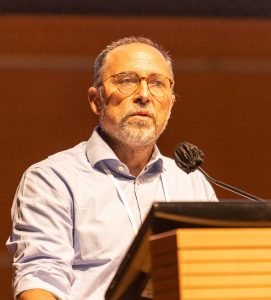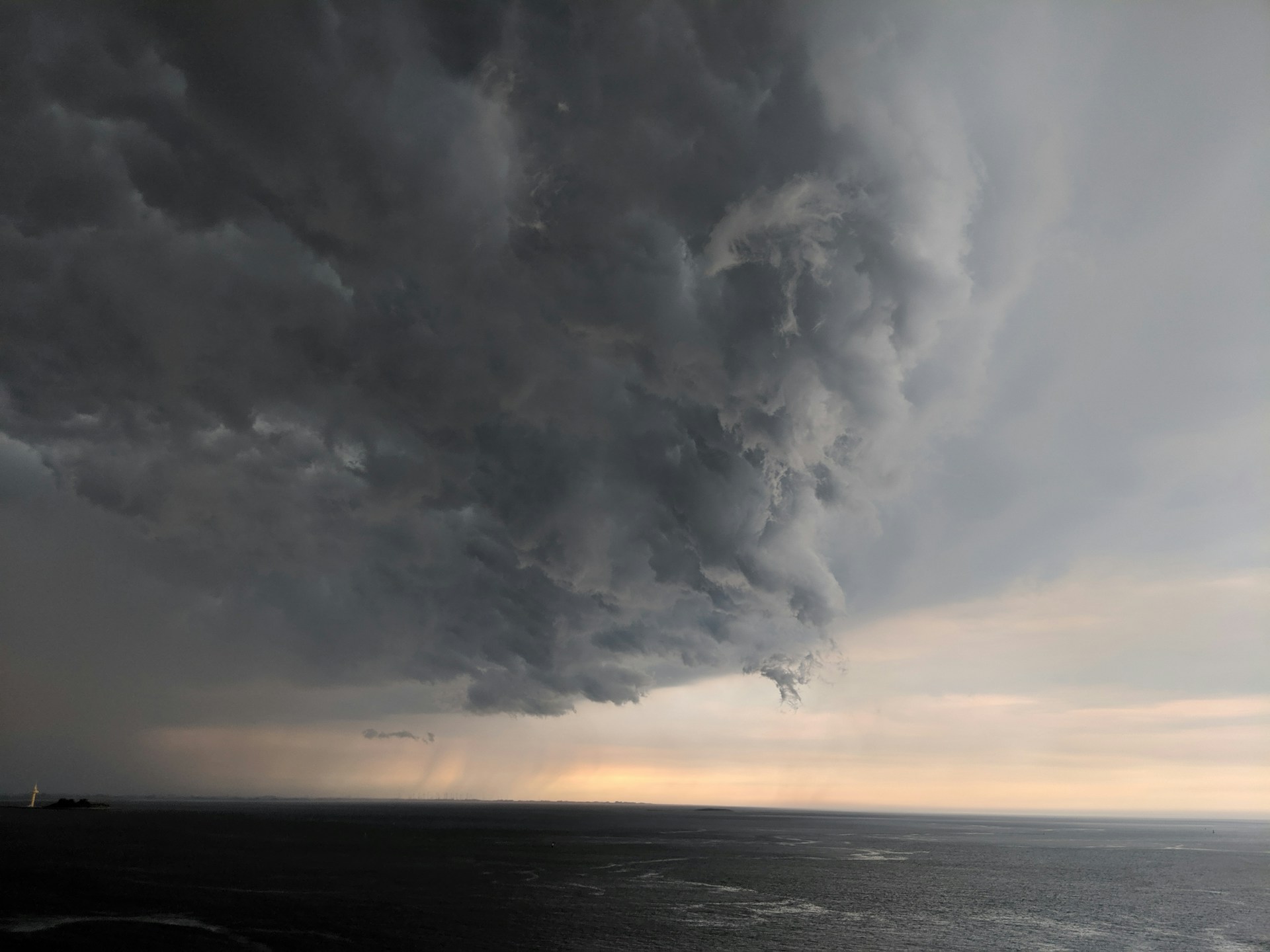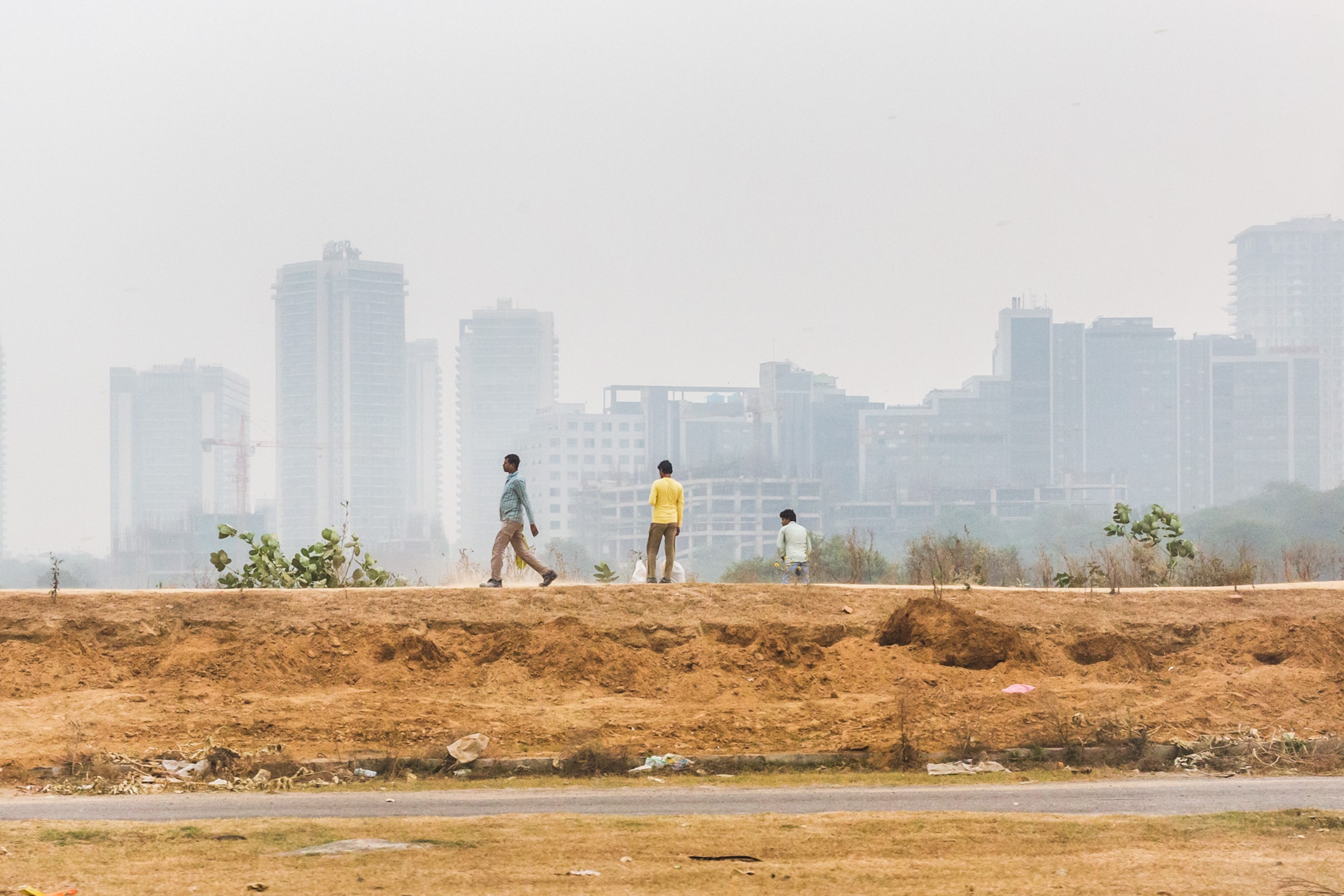Francesco Bosello, director of the CMCC division on Economic analysis of Climate Impacts and Policy, has seen the Global Risk Report of the World Economic Forum, now at its 19th edition, evolve. Over the course of the years, climate and environmental issues have featured among the concerns of global public opinion leaders.
When teaching environmental economics and policy at Ca’ Foscari University of Venice, Bosello uses the Report as a valuable resource with which to introduce environmental and climate issues in the broader context of what the current and future global risks are.
“We can no longer consider the environmental discourse as a purely environmental problem or artificial intelligence as a technological problem, and the economic crisis as an economic issue. All are intertwined and all are development issues,” says Bosello. “Even though we are aware of the climate risks and we have the technological means we are lacking the political and even the social will to deal with them.”
What does the Report tell us about the way we are tackling environmental and climate issues?
It’s interesting to see how, despite risks from other sources, the environmental and climate theme remains central.
Even in a context where we’ve come from two years of a global pandemic and a resurgence of geopolitical conflicts, environmental issues have not taken a back seat. Indeed, the main global risk elements perceived by respondents – who are business representatives and policymakers and don’t come from a purely environmentalist perspective – are linked to climate and environmental issues.
What were some of the changes from previous editions?
What I noticed in this latest edition is that there are new ideas and more emphasis on things like adaptability to climate change, which in previous years was less evident, as well as a more in-depth analysis of the measures with which we can counter some of the risks listed.
In addition to being descriptive of what the main global risks are, this year’s Report also tries to interpret the implications of these risks.
Among the perceived risks one would also expect there to be the failure of environmental policies, given that environmental risks are so high. In previous reports, the failure of adaptation policies and environmental failures were among the top risks. However, this year, this aspect has disappeared.
The report concludes that there is a perception of the importance of environmental climate risk on the one hand, and on the other, the importance of climate and environmental policies or the possibility of their failure disappears from the list of future risks.
This is a significant contradiction that highlights a kind of societal impotence to face these problems. We are all aware of this risk, but it seems that we are concerned with dealing with other things.
What other concerns are taking precedence over dealing with climate risks?
We are dealing with the economic crisis. We are dealing with the geopolitical crisis, and even though we are aware of the climate risks and we have the technological means we are lacking the political and even the social will to deal with them.
Inaction therefore stems not from a lack of awareness but from a lack of political will or a lack of social prioritization to address the problem. Recent analysis of the current adaptation capacity of different countries has shown that all the developing world and part of middle income countries have an inadequate adaptation capacity to cope with the risks posed by climate change.
The Report does appear to place more of an emphasis on adaptation…
The current focus on adaptation is also linked to the emphasis on extreme events as one of the top risks both in the short and long term. There is now a perception that this type of event is not something that will happen in the future but that is already occurring.
There is a recognition of the need to address these events and this can only be done through adaptation, and therefore acting on the damage because we can no longer act on the causes. Better said, we can act on the causes but the effects of what we do now in terms of climate change mitigation will be seen in twenty or thirty years.
So, there is an awareness that immediate action is needed, and only through adaptation can action be effective.
Is there much discrepancy in terms of how different groups of respondents perceived risks?
The report highlights how responses change both for categories of respondents and age groups of respondents. If we look at the responses of managers under thirty, environmental climate issues are top risks even in the short term. There would be many more perceived climate and environmental risks as top risks in the next two years if we only looked at respondents under the ages of thirty five. Older respondents still see those same risks but they perceive them as something more distant in time.
What about the role of technology and issues such as disinformation which featured heavily in the report?
The issue of information, disinformation and risks related to technology are very important, especially in the short term. This may also be influenced by the fact that there are elections in many countries this year.
Yet, when it comes to technology and things like the role of artificial intelligence there is both an issue of risk but also an opportunity.
All the main risks in the report are connected to technology, the environment, and what happens in the economy. Yet, if we look at the solutions, they are also linked to technology, the environment, and the economy. In a sense, these sources of risks also present opportunities. To counter the risks the Report sees a certain coordination and cooperation at the international level as the most important element. On the other hand, it also depicts a highly fragmented world, where cooperation is hard to build and instability prevails.
What role does policy play in this process of turning risks into opportunities?
Technology is a good example. It can be one of the solutions but it must be supported in some way. If we want a certain type of technology and want it to be socially useful, we need suitable policies to direct it.
There are many studies that say that the ecological transition, for example, creates opportunities and can also be a way to get out of the economic crisis. In fact, this is the bet that Europe made with the Green Deal and America with the Inflation Reduction Act: focus on ecological transition to exit the economic crisis. Therefore, an improved management of natural resources can be a driver of development, providing solutions and opportunities.
All these elements also offer opportunities if accompanied by political and economic action. The CMCC recently published a report that shows, for example, that the ‘Fit for 55’ policy package, which aims to make the EU fit to reduce its net greenhouse gas emissions by at least 55% by 2030, would cost Italy virtually nothing in terms of GDP and generate over 300,000 new jobs thanks to the conversion of productive sectors. It is necessary to emphasize that mitigation policies that act through taxations produce resources and originate enough revenues that, when used in a mix of support to decarbonization technologies, deployment of renewable energy sources, and compensation to household income, minimize distributional concerns due, for example, to the initial rise in energy prices. All this is possible, and our study confirms for the case of Italy the findings of other European studies on the economic impact of the ‘Fift for 55’.
Can we address risks independently or is there a need for a coordinated approach?
“We can no longer consider the environmental discourse as a purely environmental problem or artificial intelligence as a technological problem, and the economic crisis as an economic issue. All are intertwined and all are development issues. Risks are all interconnected and the main element of interconnection is given by the economic dimension. Economic risks are the ones that have more interactions with all the others, all risks have a socioeconomic dimension, and it is through this dimension that risk is transmitted.
 Francesco Bosello graduated at the Ca’ Foscari University of Venice, he received a Master degree in economics from the University College of London (UK) and a Doctoral degree in economics from the University of Venice. He is presently associate professor of economics at the Ca’ Foscari University of Venice, and senior scientist at the Euro-Mediterranean Centre on Climate Change (CMCC) where he coordinates the Economic Analysis of Climate Impacts and Policy division. He is deputy director of the European Institute for Economics and the Environment a joint initiative between CMCC and the US Resources for the Future. Previously he has been associate professor at the University of Milan, and affiliate scientist at the Fondazione Eni Enrico Mattei Milan. He is currently undertaking research activities in the area of climate change impact assessment and the design of optimal mitigation and adaptation strategies developing integrated assessment modelling tools and applied general equilibrium economic models. His other research interests are more broadly related to international environmental agreements and the economics of the environment and of sustainability.
Francesco Bosello graduated at the Ca’ Foscari University of Venice, he received a Master degree in economics from the University College of London (UK) and a Doctoral degree in economics from the University of Venice. He is presently associate professor of economics at the Ca’ Foscari University of Venice, and senior scientist at the Euro-Mediterranean Centre on Climate Change (CMCC) where he coordinates the Economic Analysis of Climate Impacts and Policy division. He is deputy director of the European Institute for Economics and the Environment a joint initiative between CMCC and the US Resources for the Future. Previously he has been associate professor at the University of Milan, and affiliate scientist at the Fondazione Eni Enrico Mattei Milan. He is currently undertaking research activities in the area of climate change impact assessment and the design of optimal mitigation and adaptation strategies developing integrated assessment modelling tools and applied general equilibrium economic models. His other research interests are more broadly related to international environmental agreements and the economics of the environment and of sustainability.






